Books

Legacies of the International Criminal Tribunal for the Former Yugoslavia: A Multidisciplinary Approach
Edited by Carsten Stahn, Carmel Agius, Serge Brammertz, and Colleen Rohan. The International Criminal Tribunal for the former Yugoslavia (ICTY) is one the pioneering experiments in international criminal justice. It has left a rich legal, institutional, and non-judicial legacy. This edited collection provides a broad perspective on the contribution of the tribunal to law, memory, and justice. It explores…
Read more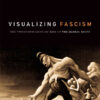
Visualizing Fascism: The Twentieth-Century Rise of the Global Right
Edited by Julia Adeney Thomas and Geoff Eley. Visualizing Fascism argues that fascism was not merely a domestic menace in a few European nations, but arose as a genuinely global phenomenon in the early twentieth century. Contributors use visual materials to explore fascism’s populist appeal in settings around the world, including China, Japan, South Africa, Slovakia,…
Read more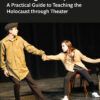
Enacting History: A Practical Guide to Teaching the Holocaust through Theater
By Mira Hirsch, Janet E. Rubin, and Arnold Mittelman. Enacting History is a practical guide for educators that provides methodologies and resources for teaching the Holocaust through a variety of theatrical means, including scripted texts, verbatim testimony, devised theater techniques and process-oriented creative exercises. A close collaboration with the USC Shoah Foundation I Witness program and the National…
Read more
The End of the Ottomans: The Genocide of 1915 and the Politics of Turkish Nationalism
Edited by Hans-Lukas Kieser, Margaret Lavinia Anderson, Seyhan Bayraktar, and Thomas Schmutz. In the early part of the twentieth century, as Europe began its descent into the First World War, the Ottoman world – once the largest Empire in the Middle East – began to experience a revolution which would culminate in the new, secular Turkish state. Alongside…
Read more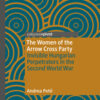
The Women of the Arrow Cross Party: Invisible Hungarian Perpetrators in the Second World War
By Andrea Pető. This book analyses the actions, background, connections and the eventual trials of Hungarian female perpetrators in the Second World War through the concept of invisibility. It examines why and how far-right women in general and among them several Second World War perpetrators were made invisible by their fellow Arrow Cross Party members in…
Read more
Special Issue of Continuum: ‘The Perpetrator of Crimes Against Humanity in Global Documentary Film’
Edited by Fernando Canet. This special issue of Continuum: Journal of Media & Cultural Studies sets out to explore how the figure of the perpetrator of political violence is represented in recent documentary film (2000–2019) across a broad variety of cultural and political contexts. The special issue features a comprehensive introduction contextualizing the study of…
Read more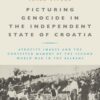
Picturing Genocide in the Independent State of Croatia: Atrocity Images and the Contested Memory of the Second World War in the Balkans
By Jovan Byford. Picturing Genocide in the Independent State of Croatia examines the role which atrocity photographs played, and continue to play, in shaping the public memory of the Second World War in the countries of the former Yugoslavia. Focusing on visual representations of one of the most controversial and politically divisive episodes of the war…
Read more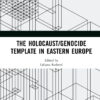
The Holocaust/Genocide Template in Eastern Europe
Edited by Ljiljana Radonić. The book focuses specifically on how “mnemonic warriors” employ the “Holocaust template” and the concept of genocide in tendentious ways to justify radical policies and externalize the culpability for their international isolation and worsening social and economic circumstances domestically. The chapters analyze three dimensions: 1) the competing narratives of the “universalization…
Read more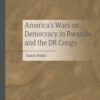
America’s Wars on Democracy in Rwanda and the DR Congo
By Justin Podur. This book examines US interventions in the Democratic Republic of the Congo and Rwanda – two countries whose post-independence histories are inseparable. It analyzes the US campaigns to prevent Patrice Lumumba from turning the DR Congo into a sovereign, democratic, prosperous republic on a continent where America’s ally apartheid South Africa was…
Read more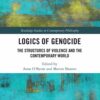
Logics of Genocide: The Structures of Violence and the Contemporary World
Edited by Anne O’Byrne and Martin Shuster. This book is concerned with the connection between the formal structure of agency and the formal structure of genocide. The contributors employ philosophical approaches to explore the idea of genocidal violence as a structural element in the world. Do mechanisms or structures in nation-states produce types of national…
Read more
